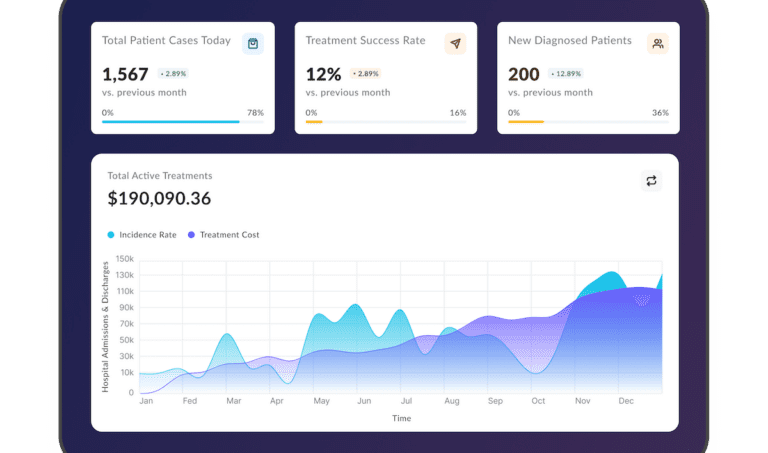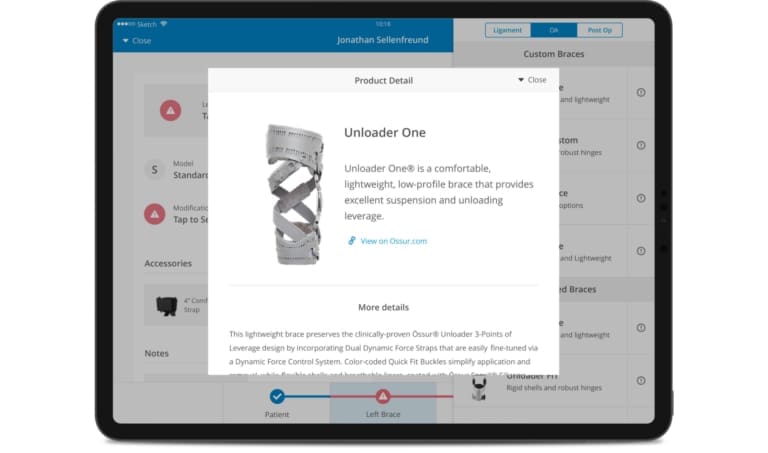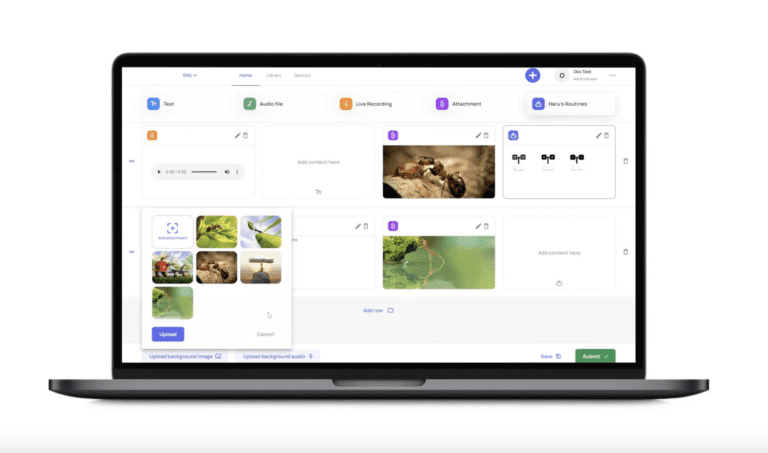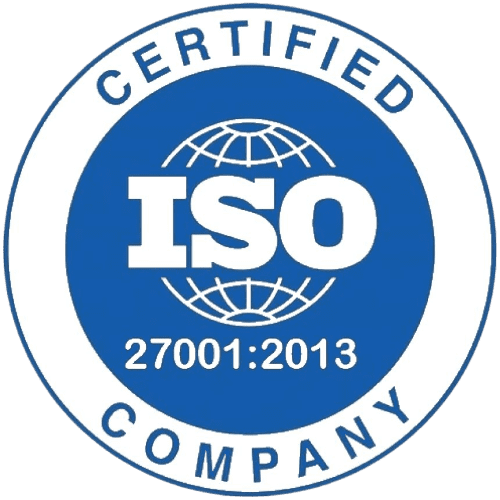IoT in Retail: Unlocking New Opportunities in 2025
Updated: January 20, 2025
IoT is increasingly used in various industries. You may have already heard of IoT in agriculture or IoT in healthcare. But are there any uses of the technology in retail? Yes, there are many of them. For example, IoT helps retailers evaluate people’s purchasing behavior, adjust inventories, and save storage space. This, in turn, allows them to save money and build long-term relationships with customers.
The worldwide Internet of Things in the retail sector was worth $44.4 billion in 2022-2023 and is anticipated to increase at a compound annual growth rate (CAGR) of 16% between 2024 and 2028. These numbers come as no surprise, as retailers strongly affected by the lockdown’s limitations have an even greater need for insights to stay afloat.

We provide companies with senior tech talent and product development expertise to build world-class software. Let's talk about how we can help you.
Contact us
Let’s look at the top prospects and the future of IoT in retail from 2024 to 2028.
Table of Contents
How is IoT changing the retail industry?
IoT opens a wide range of possibilities for the retail industry. Today, retailers may use IoT software to watch and monitor their customers’ activity and gain important insights about enhancing marketing strategies and sales tactics. Read on to learn about the recent trends in the IoT retail market.
COVID-19 impact
The pandemic has had a significant influence on global IoT expenditure, particularly in retail purchasing. Retailers have placed a series of innovative ventures on hold. Their primary focus has been on maintaining corporate operations throughout the economic downturn.
In late 2021, however, IoT usage in retail is projected to grow steadily. Businesses already use mobile banking services, autonomous cleaning robots, and contactless checkout kiosks to limit human involvement and coronavirus transmission.
Following the pandemic, artificial intelligence (AI), cloud computing, and automation are anticipated to drive retail business growth for years to come.
IoT retail market trends
IoT enables merchants to collect data and provide insights while maintaining data security. In the IoT industry, the following retail market trends have been observed:
- Software components expected to hold a significant share: Higher transaction amounts and increasing order frequency are responsible for the significant rise of online purchasing. The Internet of Things can improve logistics operations, minimize inventory errors, and save labor expenses.
- North America to hold the largest share: According to the U.S. Census Bureau, retail sales reached a new high of $5.7 trillion in 2017, up 4.5% year after year and 42% more than the previous high of $4.06 trillion in 2009. Two fundamental developments, namely advanced technologies and evolving customer behavior, are responsible for the significant shift in U.S. retail.
Benefits of IoT in the retail industry
Retailers are already taking full advantage of incorporating the Internet of Things into their operations. Let’s have a look at the key benefits of deploying IoT apps in retail:
- Improved supply chain management: Since each object is identified and inspected, the overall logistics management process may be substantially optimized with RFID and GPS technologies.
- More advanced in-store inventory tracking: IoT helps collect data necessary for product inventory control, optimization, and visibility.
- Better customization and customer experience: IoT and machine learning algorithms evaluate customer data in real-time, delivering valuable insights to improve consumer engagement and participation.
- Reduced shrinkage and fraud: Biometrics powered by the IoT offers businesses huge quantities of factual data that allows them to track items and delivery operations, reducing theft.
- In-store staff optimization: It is a regular occurrence in establishments when a consumer seeks assistance or a recommendation while shopping. So company owners use motion sensors, face recognition sensors, and cameras driven by neural network models to simplify their purchasing decisions.
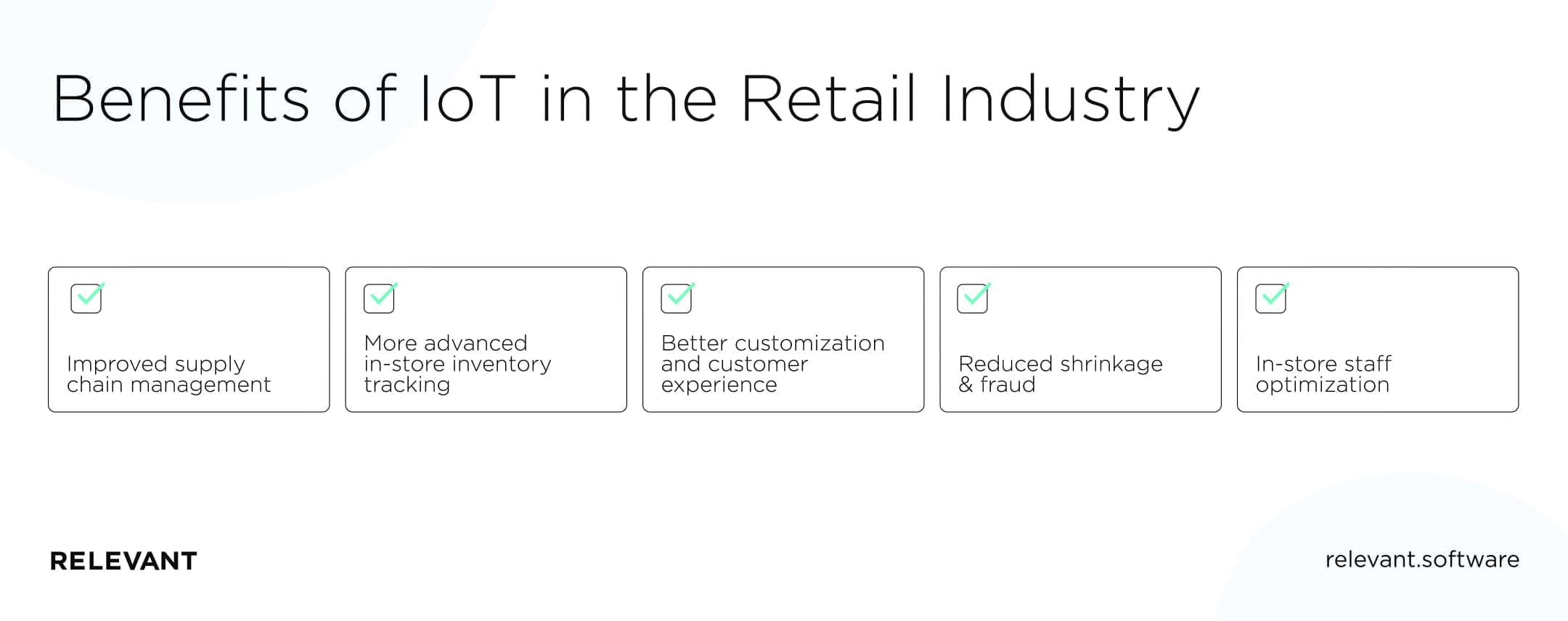
IoT in the retail industry: Top 5 examples
Now that we reviewed the main benefits and trends of IoT in retail, it’s time to move on to the most popular IoT usage examples.
How is IoT used in retail?
In the retail industry, the following key IoT technologies are being deployed, which help reduce costs and simplify business operations:
- Personalized retail marketing and content delivery: The advent of IoT in retailing has made shopping a firsthand experience based on consumers’ preferences by utilizing artificial intelligence and machine learning in establishments.
- Optimal staffing-level indicators: With IoT, staffing becomes a piece of cake, as sophisticated models can anticipate demand, supply, and customer retention ratios, assisting in total staffing.
- Cashierless payment systems: The Internet of Things has made cashierless checkouts a reality, allowing customers and companies to save time and money by removing human interaction.
- Real-time monitoring of goods: Inventory may be tracked using automated methods to determine which items are in abundance and shortfall.
- Buyer behavior tracking: With IoT and artificial intelligence, tracking buyer behavior becomes simple since these technologies can recognize crucial behavioral features such as gestures and the time spent on shopping.

Companies using IoT technology
The continuing and ever-evolving IoT is revolutionizing retail business for the following companies:
- AWM Smart Shelf: The Smart Shelf from AWM is equipped with edge screens that showcase product prices and information and communicate stock levels. To offer better-targeted display material, it can also detect a customer’s age, gender, and nationality.
- Plexure: With a low cost of ownership, Plexure’s easy interface offers an out-of-the-box AI-powered platform that enables merchants to send personalized messages, manage orders and payment, loyalty, and analytics.
- Locus Robotics: Locus Robotics creates self-driving robotic systems that improve logistics operations by lowering labor expenses and increasing product delivery speed and accuracy while minimizing interruption to current operations.
- Zebra Technologies: IoT is used in Zebra’s sound tracking system to give real-time sight of items and personnel in warehouses and transit. Customer fulfillment and experience, as well as in-store operations, are among the services provided.
- Cognizant: Cognizant’s technology aids in the digitalization of non-digital objects. It collaborates with consumer products, department shops, discount stores, and supermarkets in the retail industry to improve customer experience, increase revenues, and optimize merchandising.

Challenges of integrating IoT technology in the retail industry
The following challenges need to be addressed for the successful implementation of IoT in the retail industry:
| Issue | Challenge | Solution |
| Security | The primary issue in implementing IoT devices is guaranteeing safety and confidentiality. Providing consumers with data access expands potential while also increasing the risk of threats. | End-to-end encrypted communications, recurring software upgrades, secure username and password, and an IT framework that constantly and continuously monitors for security breaches must all be implemented in IoT software development. |
| Infrastructure | Retailers’ operations are inefficient due to a lack of equipment and networks to handle huge amounts of IoT data. | Small modifications, such as IoT-controlled climate control or illumination, should be implemented first. It will provide a quick return on investment, allowing merchants to move on to more advanced IoT solutions like in-store analytics. |
| Data Management and Analytics | Retailers lack the technical capabilities needed to handle data and get value from IoT solutions. | Employing specialists or relying on skilled, well-trained, and certified third parties may help retailers manage their IoT data. |
The future of IoT in retail
The IoT industry was valued at $465 billion in 2019 and is anticipated to reach $1.5 trillion by 2030.
Infrastructure, programming, cloud, and applications, including connectivity, will account for 66% of IoT investment, with hardware, such as specialized IoT devices, components, and adapters, responsible for the remaining 36%.
According to a McKinsey and Gartner.com IOT projection, the percentage of organizations using IoT technology has risen from 13% in 2014 to over 25% now. By 2025, the number of IoT-connected devices worldwide is expected to rise to 43 billion, nearly tripling from 2018.
How can Relevant Software help you grow your business?
Relevant is an experienced IoT software development company; therefore, we can rapidly grasp your requirements and implement the best technologies.
Give us a quick overview of the types of services you want, and we can help you establish your business utilizing IoT technology.
Our IoT services for retailers include:
- Technology consulting
- IoT software enhancement
- Advanced analytics
- Full cycle IoT development
- IoT app development
- IoT developer hiring
Conclusion
Retailers benefit from IoT in various ways, including obtaining useful information, real-time reporting, and continual monitoring. This may help them improve their clients’ experience and increase their earnings.
If you want to leverage IoT and have an IoT software development project in mind, the Relevant team is here to help.
FAQ
Our core services:
Do you want a price estimate for your project?
Do you know that we helped 200+ companies build web/mobile apps and scale dev teams?
Let's talk about your engineering needs.
Write to us